Feast of St. Ignatius of Loyola: Be Filled with the Light of That Fire
BY CHRIS KERR | July 31, 2016
Happy Feast Day of St. Ignatius of Loyola!

Students reflecting on the shores of Lake Erie during the University Leaders Summit.
This past week the Ignatian Solidarity Network welcomed 25 Jesuit university students to our homebase in Cleveland, Ohio. They came to be part of our University Leaders Summit, a 4-day/3-night leadership retreat. Throughout the week they explored what being a leader for social justice means in the context of the Ignatian spiritual tradition. We immersed the students in the legacies of people like Pedro Arrupe, S.J., Ignacio Ellacuria, S.J., and his fellow Jesuit and lay martyrs, Pope Francis, and of course St. Ignatius of Loyola.
By the first night, I could tell we had a special group of students with us. During the closing reflection that evening, they shared stories of how their heart was touched at some point in their life and how this contact has motivated them to work for justice. Some shared stories of “encounter” with the marginalized close to home or in far off lands and others shared a personal experience of injustice. Economic injustice, racism, and concern for the care of creation were just a few of the issues they expressed grave concern about. Throughout the week, we drew on the inspiration of these experiences as grounding for the work they will do to mobilize their peers when they return to their Jesuit university campuses this fall.
On the final morning of the Summit I spoke with the students about the importance of “Engaging the Heart” in order to enable others to also act for the common good, and led them through a guided reflection of the “Parable of the Good Samaritan.” Inviting the students to place themselves in the parable and view it from the perspective of one of the characters in the story, I was moved by their analysis. One student chose the “Levite” who passed by the man on the ground, because she wanted to understand the story from the perspective of someone who did not act so, they could consider how to engage people like him on their campus. Another student chose the innkeeper, because he wanted to think more about when he had seen others act for justice in his own life. In short, the students embraced the parable as a framework for how we can respond to injustice in our world.
St. Ignatius’s vision of faith can help us to become closer to our brothers and sisters who are marginalized by injustice, through understanding, prayer, reflection, and action.
As we celebrate the Feast of St. Ignatius of Loyola today, the students’ analysis of the Good Samaritan can be a framework for each of us as well. St. Ignatius’s vision of faith can help us to become closer to our brothers and sisters who are marginalized by injustice, through understanding, prayer, reflection, and action. In letters to Jesuits heading out on mission Ignatius would write, “Go, Set the World on Fire.” Can we take up this call through our actions, as people of solidarity with those whose dignity is threatened by the realities of injustice? Like the Samaritan, can we “Set the World on Fire” with acts of justice that overcome things like hate, violence, and poverty?

Students advocates during the 2015 Ignatian Family Teach-In for Justice.
I think we can, but I also think we will be stronger doing it together. In just the past year, I have seen many examples of how our strength as an ever-growing “Ignatian network” is slowly overpowering injustice with light. Last September, nearly 40,000 people joined together to reflect on Pope Francis’s address to the U.S. Congress where he called on representatives and senators to work for the “common good.” In November, over 1,200 young people advocated to Congress for humane comprehensive immigration reform and funding to respond to the decimating impacts of climate change that threaten some of our most vulnerable brothers and sisters throughout the world. In February, over 4,000 people joined together to lift up Pope Francis’s message of solidarity at the U.S.-Mexico border, sending thousands of messages to Congress calling for immigration reform and human rights oriented policies in Central America.
Next month, in partnership with the Jesuit Conference, we will send a letter to Congressional leaders signed by over 100 graduates of Jesuit Law Schools calling for humane criminal justice reform. Throughout all of this, our community of supporters has grown as well — ISN now has over 80 member institutions including all 28 Jesuit colleges and universities, a social media community of more than 25,000 followers, and nearly 250,000 website users in the past year.
Thank you for all that the contributions you make to the growing work of the Ignatian Solidarity Network!
Happy Feast Day of Saint Ignatius of Loyola! May we all be filled with the “light” of that “fire” to be people of solidarity.
Chris joined the Ignatian Solidarity Network (ISN) as executive director in 2011. He has over fifteen years of experience in social justice advocacy and leadership in Catholic education and ministry. Prior to ISN he served in multiple roles at John Carroll University, including coordinating international immersion experience and social justice education programming as an inaugural co-director of John Carroll’s Arrupe Scholars Program for Social Action. Prior to his time at John Carroll he served as a teacher and administrator at the elementary and secondary levels in Catholic Diocese of Cleveland. Chris speaks regularly at campuses and parishes about social justice education and advocacy, Jesuit mission, and a broad range of social justice issues. He currently serves on the board of directors for Christians for Peace in El Salvador (CRISPAZ). Chris earned a B.A. and M.A. from John Carroll University in University Heights, Ohio. He and his family reside in Shaker Heights, Ohio.

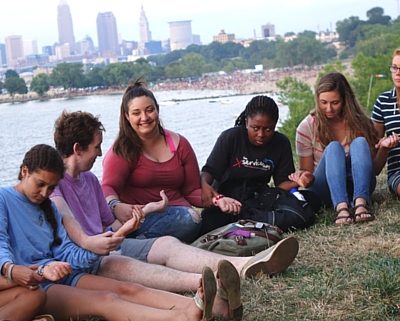


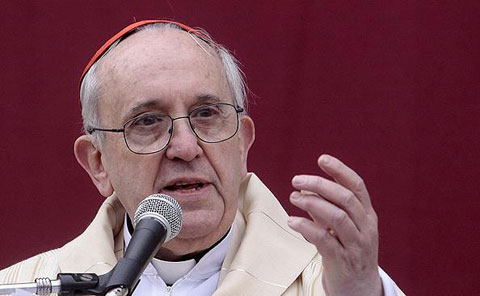
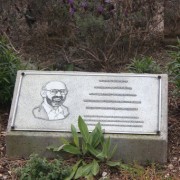
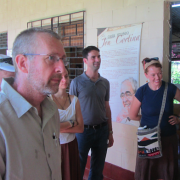
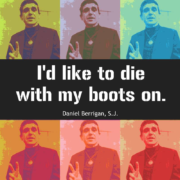



When the pope visited, I didn’t see him being concerned with giving compassion to US Citizens who are poor, uneducated, who have lost their jobs to Illegal Aliens. This effect was warned about in 1965:
http://www.newswithviews.com/Spingola/deanna3.htm
“In light of our 5 percent unemployment rate, our worries over the so called population explosion, and our menacingly mounting welfare costs, are we prepared to embrace so great a horde of the world’s unfortunates? At the very least, the hidden mathematics of the bill should be made clear to the public so that they may tell their Congressmen how they feel about providing jobs, schools, homes, security against want, citizen education, and a brotherly welcome… for an indeterminately enormous number of aliens from underprivileged lands.” “We should remember that people accustomed to such marginal existence in their own land will tend to live fully here, to hoard our bounteous minimum wages and our humanitarian welfare handouts…lower our wage and living standards, disrupt our cultural patterns.” Myra C. Hacker, Vice President of the New Jersey Coalition of Patriotic Societies, on the 1965 Hart Celler Act
“Whatever may be our benevolent intent toward many people, the bill fails to give due consideration to the economic needs, the cultural traditions, and the public sentiment of the citizens of the United States.” Myra C. Hacker, on the 1965 Hart Celler Act
Also, isn’t it interesting that the catholic church is one of the largest recipient of financial “donations” in the world? If the pope is so concerned for these migrants, then why doesn’t he exhort those countries (including his native Argentina) to take care of their citizens in need?
http://www.washingtontimes.com/news/2015/sep/24/catholic-church-collects-16-billion-in-us-contract/
Catholic Church collects $1.6 billion in U.S. contracts, grants since 2012
“Not to be lost in the pomp and circumstance of Pope Francis’ first visit to Washington is the reality that the Catholic Church he oversees has become one of the largest recipients of federal largesse in America.”
Also:
http://www.ncronline.org/news/peace-justice/catholic-social-teachings-call-dignity-creation
“We also note that the majority of the undocumented are Roman Catholics who would formally join their parishes and help support them with their just wages.”
I’d like to respond in reverse order:
Reasonably, there are simply too many undocumented migrants to be deported. Not to mention violations of human rights from ripping families apart. Do you truly think the Church argues for granting them rights in order to get their Sunday offerings? Please come visit the Back of the Yards neighborhood in Chicago if you think undocumented workers are living “high on the hog” at the cost of “our own” unemployed, uneducated, etc.
Regarding Ms Hacker’s 50 year old remarks–they were mean spirited then and they still are.
There is so much less pomp and circumstance with Pope Francis that this remark is unbelievable. The $1.6 billion in contracts and grants accomplish works of charity and fund research done by educational institutions to solve problems. This is true of the institutions of Mormon, Jewish and other Christian denominations as well. Public institutions caring for people in difficulties have almost vanished during my lifetime. Does your county have a sanitarium anymore? Or a home for the severely developmentally disabled?
I’ve never met an economic refugee from Argentina.
Ignatius was a man for others. Long live his charisma.